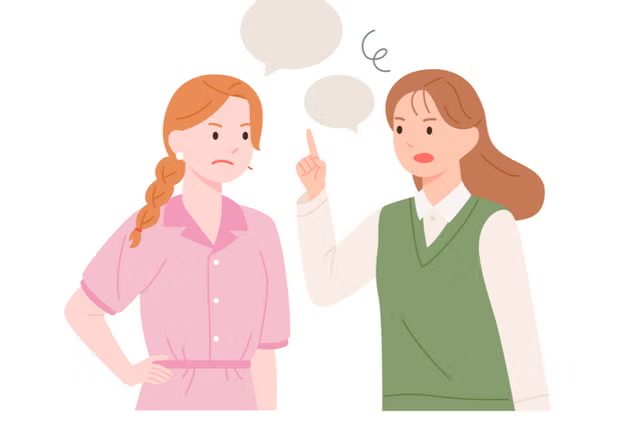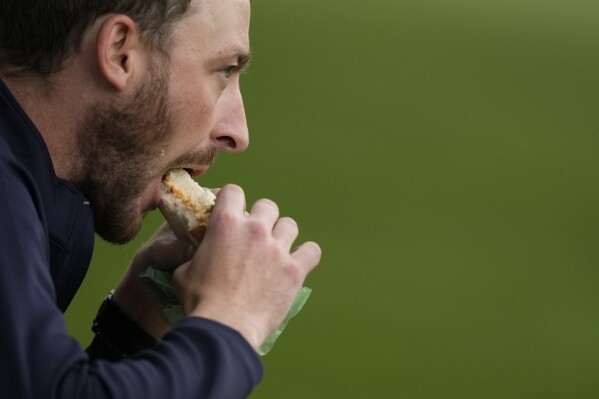Mothers of Britain, if, like BBC broadcaster Rachel Burden, you are “really selfish”, please raise your hand. Crikey! For the love of JoJo Maman Bébé, you almost took my eye out!
To be clear, “really selfish” doesn’t include tearfully putting the kids in nursery before they can even sit upright. (Spoiler alert: I did, they’re fine. And if in doubt, blame your husband for not being Jacob Rees-Mogg and inheriting the family nanny to pass her on, in due course, to his firstborn son.)
Nor does it include using shop-bought chicken stock (Annabel Karmel, look away). And if you still feel guilty about letting your baby cry himself to sleep way back when, just wait until you find the little beggar rolling a zoot or joint or whatever they call them these days in his bedroom and have to think up a suitable sanction through the hazy fug.
Take it from me, these actual or perceived infractions barely register because “really selfish” in this context means having a baby after 40. Ooops. Mea culpa and all that.
Burden has created quite the furore by declaring that having a child aged 41 was a “really selfish thing to do”. The 5 Live radio and BBC Breakfast presenter, who already had three children, admitted she spent a long time trying to convince her husband that it was the “right idea”.
She fell pregnant – now there’s an expression in urgent need of a feminist rebrand – but then developed pre-eclampsia, which meant her son was delivered nine weeks early and needed hospital care.
It all turned out fine and he’s a healthy lad, but, Burden by name and all that, she is still weighed down by what happened eight years later.
One of the numerous risk factors for pre-eclampsia, which causes high blood pressure and is actually more likely to happen with the first pregnancy, is age. Others include kidney disease, carrying twins and, as my obstetrician friend puts it, “the luck of the draw”.
Burden, however, is focusing on the age thing. Incidentally, there is no indication that her husband – who, let’s be clear, ultimately agreed to have another child – feels “really selfish”. He’s probably just getting on with his life. As men do.
I had my first child at the age of 36 and my second at the grand old age of 42. Anything over 35 used to be called “geriatric”, but is now flagged as “advanced maternal age”.
Towards the end of the later pregnancy I developed gestational diabetes – nobody knew why – which meant my daughter had to be delivered four weeks early. When she was born she was unresponsive and was taken to the special baby care unit for a week.

I felt anguished, terrified and then immensely grateful when she was returned to me, alive and well. I did not feel “really selfish”. (I honestly felt worse about the shop-bought stock). Not once.
While I acknowledge Burden’s right to feel whatever she damn well wants about the size of her family, the tremendous fuss generated by her remarks is a reflection of the way in which motherhood is once again not just a talking point but a source of friction and heated debate.
Tumbling birth rates in the developed world have transformed the deeply personal into a highly political issue. The average age of a first-time mother is 32, and more babies are born to women over 40 than those under 20. But that’s not enough to tip the balance.
Figures from the Office for National Statistics show that in 2022 the birthrate sank to 1.49 children per woman, well below the rate of 2.1 needed to maintain a steady population without significant immigration. In 2022, just under 605,500 babies were born in England and Wales. Almost a third (30 per cent) of the mothers were not born in the UK.
Our ongoing baby bust – which has been felt since 2010 – has already prompted school closures in many areas, including central London. Our ageing population is not being replaced.
It is a looming crisis not helped by former Liverpool player Jamie Carragher’s tone-deaf contribution; he’s just urged the current crop of professional footballers to hold off on having kids until their 30s so that they can “focus on their game without any distractions”. Nice. Very public spirited.
Meanwhile, across the channel, President Macron has pledged more “natalist” policies to counter France’s falling birth rate – in 2023, fewer than 700,000 babies were born, a figure not seen in the country since the Second World War. And in Italy, tackling the “demographic winter” is near the top of the government agenda.
Radical steps have already been taken in South Korea where the birthrate is the lowest in the world at just 0.78. It has just been announced that male and female employees at construction company Booyoung will receive a 100 million Korean won (£58,000) payout each time they have a baby.
That’s possibly just about the right amount to persuade young couples here to start a family as the greatest hurdles to having children are economic stability and affordable childcare. But we’re some distance away from that. For now.
In the interim, every baby born is both a blessing and a future taxpayer. So I would urge Rachel Burden to stop feeling selfish; with four children she’s done her bit to secure the nation’s future. Let’s just hope they don’t become professional footballers…
Disclaimer: The copyright of this article belongs to the original author. Reposting this article is solely for the purpose of information dissemination and does not constitute any investment advice. If there is any infringement, please contact us immediately. We will make corrections or deletions as necessary. Thank you.



